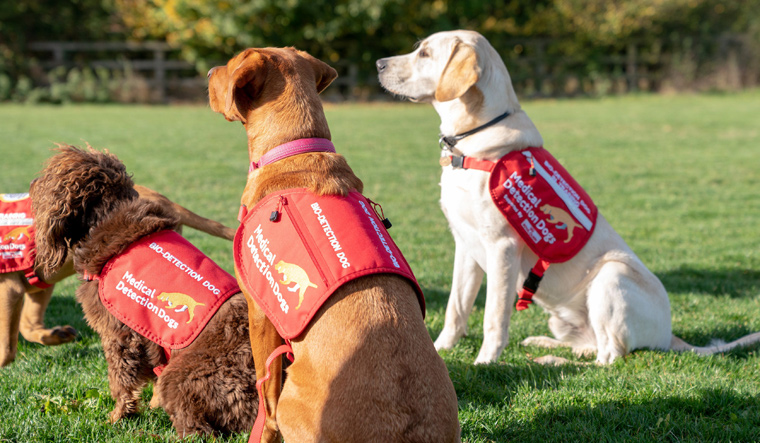Scientists say they have trained dogs to sniff out tell-tale aromas of malaria using clothes from people infected with the deadly disease.
Freya, a Springer Spaniel, is one of the dogs who has been trained to sniff out the scent of malaria, said researchers from Durham University in the UK.
Freya's highly sensitive nose could help provide the first non-invasive test for the disease, they said.
Sniffer dogs could potentially be deployed at ports of entry to identify passengers carrying malaria to prevent the spread of the disease across borders and to ensure people receive timely antimalarial treatment.
Researchers found that dogs could scent malaria in samples of socks worn by infected children.
"While our findings are at an early stage, in principle we have shown that dogs could be trained to detect malaria infected people by their odour with a credible degree of accuracy," said Steve Lindsay, a professor at Durham University.
"This could provide a non-invasive way of screening for the disease at ports of entry in a similar way to how sniffer dogs are routinely used to detect fruit and vegetables or drugs at airports," Lindsay said.
"This could help prevent the spread of malaria to countries that have been declared malaria free and also ensure that people, many of whom might be unaware that they are infected with the malaria parasite, receive antimalarial drug treatment for the disease," he said.
Researchers from the Medical Research Council Unit, The Gambia (MRCG) and the London School of Hygiene & Tropical Medicine (LSHTM) used nylon socks to collect foot odour samples from apparently healthy children aged five to 14 in the Upper River Region of The Gambia in West Africa.
Using a simple finger-prick test the children were also screened to determine if they had the malaria parasite Plasmodium falciparum in their blood. The sock samples were transported to the Medical Detection Dogs (MDD) charity in Milton Keynes, UK, where dogs were trained to distinguish between the scent of children infected with malaria parasites and those who were uninfected.
In total 175 sock samples were tested including those of all 30 malaria-positive children identified by the study and 145 from uninfected children. The dogs were able to correctly identify 70 per cent of the malaria-infected samples. They were also able to correctly identify 90 per cent of the samples without malaria parasites, researchers said.
Malaria is a life-threatening disease caused by parasites transmitted to people through the bites of infected female Anopheles mosquitoes, but it can be prevented and cured.
According to the World Health Organization (WHO), since 2000 six countries have been certified malaria free, with another 12 countries reporting that no malaria cases have originated within their borders.


